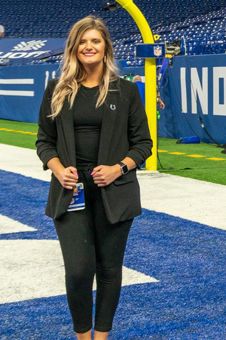Using Virginia's CTE Resource Center as a Parent/Student
The CTE Resource Center is a resource for career and technical education programs in Virginia's public schools. School divisions throughout the state use our industry-validated curriculum to build their course catalogs and teach students the fundamentals of workplace readiness and within a selected occupation or area of interest.
Here, you can browse through courses by Career Cluster or by keyword search to learn more about a course—from the course description to prerequisites to certifications and licenses offered.
Once you have identified a course (or courses), check with your local school division to see whether it is offered at a school nearby.

Choosing the Right Career
Choosing a career is all about interests, strengths, knowledge, skills, and abilities.
Combined with self-assessments and interest inventories, career and technical education courses can help you decide where your interests lie and help you learn the competencies you will need to succeed in the job.
Middle school exploratory curricula gives students a broad look at careers, while high school curricula further refines the focus in order to prepare them for the next step: a job in their chosen field or postsecondary education.
Popular Career Clusters
- Educating and Training: These careers are focused on managing and providing education and training services and related learning support services.
- Information Technology: These careers are focused on building linkages in information technology occupations for entry-level, technical, and professional careers related to the design, development, support, and management of hardware, software, multimedia, and systems integration services.
- Marketing: These careers are focused on planning, managing and performing marketing activities to reach organizational objectives.
- Health Science: These careers are focused on planning, managing, and providing therapeutic services, diagnostic services, health informatics, support services, and biotechnology research and development.

Find your industry-validated curriculum and associated resources within one of Virginia's 17 career clusters.

Information about Virginia Board of Education-approved certifications and licenses.

The latest news on career and technical education throughout Virginia and the U.S.
FAQ
Students and Parents
CTE courses found on this website can be taken at public middle and high schools in Virginia. The CTE Resource Center works with the Virginia Department of Education Office of Student Pathways & Opportunities to create, validate, and revise courses. If you find a course on our website, check with your local school division to see whether it is offered.
Career and technical education (CTE) high-quality work-based learning (HQWBL) is comprised of school-coordinated workplace experiences that are:
- Related to students’ career goals and/or interests
- Integrated with instruction, and
- Performed in partnership with local businesses and organizations.
CTE HQWBL experiences enable students to apply classroom instruction in a real-world business or service-oriented work environment and are available throughout the school year. While many students work during the school year, experiences are also available during the summer months.
For more information, see the Virginia Department of Education Office of Student Pathways & Opportunities High-Quality Work-Based Learning webpage.
Students often take credential examinations at the conclusion of their coursework. Some courses are associated with multiple credentials, and the educator will work with the student to determine the best credential examination to take. Some licenses are regulated by a state agency and may have a minimum age requirement to take the examination. The examinations can be offered online, in the school, or at a testing facility.




